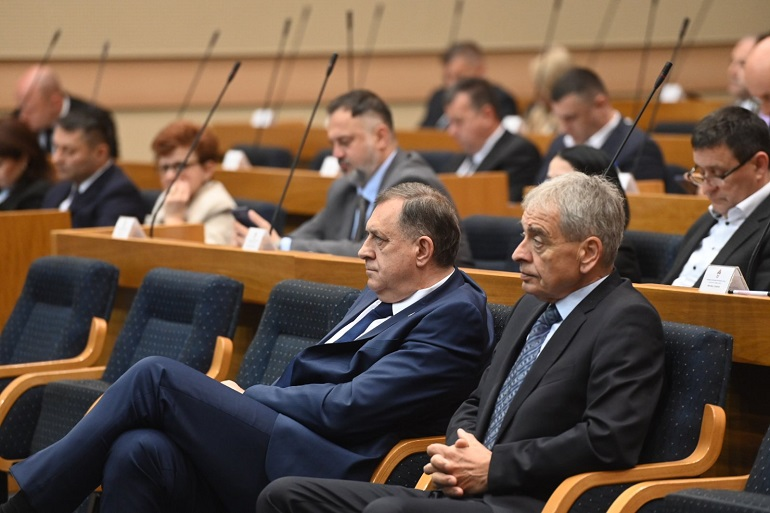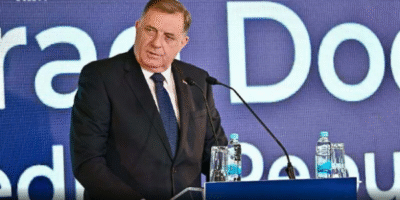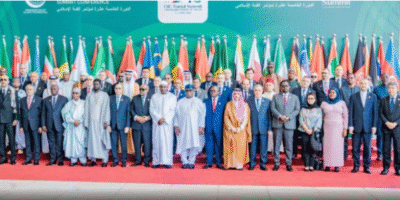Bosnian Serb assembly ups its confrontation with High Representative and the US by adopting new laws giving the entity sole power over elections and referendums.
Responding to the latest interventions of the High Representative to Bosnia and Herzegovina, Christian Schmidt, the National Assembly of Bosnia’s Serb-dominated entity, Republika Srpska, adopted an Election Law on Friday. Announcing it earlier this month, Milorad Dodik, the RS president, called it one of “the most important” documents for the entity. A majority of 51 in the assembly voted for the law.
Under Bosnian law, the two entities in Bosnia can only make their own laws if they are in accordance with the state-level one. The new law gives the Serb entity control over elections and envisages the creation of a Republic Election Commision, which would make the current state-level one invalid.
Before coming into force, the law needs to undergo a vote in the People’s Council of Republika Srpska, which will determine if it goes against national interest of any ethnic group in the entity.
The changes come after, at the end of March, Schmidt, Bosnia’s international overseer, imposed changes to the state-level Election Law, using his powers to force the legislation through.
Lawmakers in Republika Srpska – many of whom are among 27 people sanctioned by the US, whose bank accounts in Bosnia were closed last month – also changed the Labour Law, making cash payments possible again.
Prior to the vote, assembly speaker Nenad Stevandic, who is among US-sanctioned individuals and was unable to receive his paycheck, told the representatives to “respect the human rights of their colleagues” and vote for the changes.
On July 1 last year, Schmidt annulled the two laws adopted by Republika Srpska and announced changes to the Bosnian Criminal Code to make an “attack on the constitutional order of BiH” and “failure to comply with the decisions of the High Representative” a crime.
Responding to that, the RS assembly also adopted a Law on Immunity, designed to protect officials from Republika Srpska from any such prosecution.
The assembly also adopted a new Referendum and Civil Initiative Law, which puts the organisation of referendums into the hands of the future entity-based Election Commission.
The assembly also adopted the “Report of the Independent International Commission for the Investigation of the Suffering of All Peoples in the Srebrenica Region in the Period from 1992 to 1995”, which effectively denied that genocide took place in the eastern Bosnian town in 1995.
Bosnian Serbs have disputed Schmidt’s mandate since he took office in 2021, claiming that it was not confirmed by the UN Security Council.
Ahead of the vote, the RS government and representatives from Serbia joined a rally named “Srpska is Calling You”, called by Dodik to “defend the freedom and future” of the Serb people ahead of the May 2 UN vote on the Srebrenica genocide resolution. “From this rally, we will make it clear that we cannot live with Muslims, that is, Bosniaks who persistently slander us and impose responsibility where it does not exist,” Dodik said.



